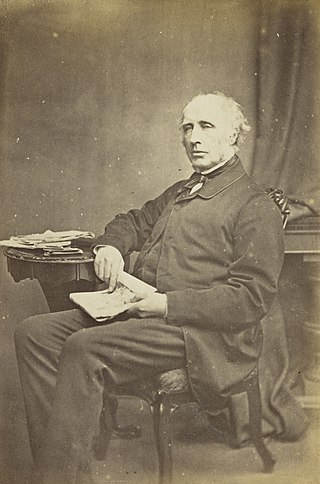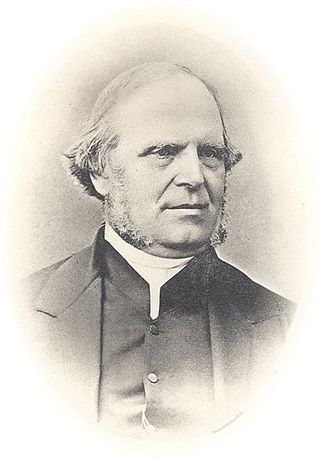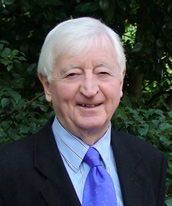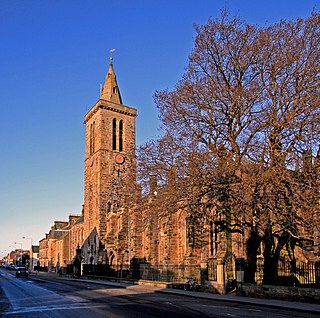Related Research Articles

William Elphinstone was a Scottish statesman, Bishop of Aberdeen and founder of the University of Aberdeen.

Cosmo Nelson Innes FRSE was a Scottish advocate, judge, historian and antiquary. He served as Advocate-Depute, Sheriff of Elginshire, and Principal Clerk of Session.
Aberdeen Grammar School FP RFC, also known as Aberdeen Grammar, are an amateur rugby union club based in Aberdeen, Scotland. They currently compete in the Scottish National League Division One. The club plays its home games at Rubislaw in the city's west end.
William John Allan Macartney was a Scottish politician who served as a Scottish National Party MEP for the North East Scotland constituency between the 1994 European Parliament election and his sudden death from a heart attack in 1998.

James Aitken Wylie was a Scottish historian of religion and Presbyterian minister. He was a prolific writer and is most famous for writing The History of Protestantism.
Donald Elmslie Robertson Watt FRSE was a Scottish historian and Professor Emeritus at St Andrews University.
David Ditchburn is a Scottish historian. He is a senior lecturer at Trinity College Dublin.
Christian Watt was a fisherwoman and memoirist.
Roderick Watson is a Scottish poet. He is a professor emeritus in English Studies at the University of Stirling.

Charles Sanford Terry was an English historian and musicologist who published extensively on Scottish and European history as well as the life and works of J. S. Bach.

Edith Mary Wardlaw Burnet Hughes HonFRIAS was a Scottish architect, and is considered Britain's first practising female architect, having established her own architecture firm in 1920.

Joseph Robertson FSA was a Scottish historian and record scholar.

Patrick Fairbairn was a Scottish Free Church minister and theologian. He was Moderator of the General Assembly 1864/65.
Alexander Broadie, Scottish philosopher, emeritus professor of logic and rhetoric at Glasgow University. He writes on the Scottish philosophical tradition, chiefly the philosophy of the Pre-Reformation period, the 17th century, and the Enlightenment.
Paul Dukes FRSE was a historian at the University of Aberdeen, known for his work relating to Russia and Europe.

Thomas Martin Lindsay FRSE (1843–1914) was a Scottish historian, professor and principal of the Free Church College, Glasgow. He wrote chiefly on church history, his major works including Luther and the German Reformation (1900), and A History of the Reformation (1906–1907).

Andrew Hook, FBA, FRSE, is emeritus Bradley Professor of English Literature at the University of Glasgow.

The history of universities in Scotland includes the development of all universities and university colleges in Scotland, between their foundation between the fifteenth century and the present day. Until the fifteenth century, those Scots who wished to attend university had to travel to England, or to the Continent. This situation was transformed by the founding of St John's College, St Andrews in 1418 by Henry Wardlaw, bishop of St. Andrews. St Salvator's College was added to St. Andrews in 1450. The other great bishoprics followed, with the University of Glasgow being founded in 1451 and King's College, Aberdeen in 1495. Initially, these institutions were designed for the training of clerics, but they would increasingly be used by laymen. International contacts helped integrate Scotland into a wider European scholarly world and would be one of the most important ways in which the new ideas of humanism were brought into Scottish intellectual life in the sixteenth century.
George David Henderson was a Scottish historian and a minister of the Church of Scotland.
References
- ↑ "Staff Directory". abdn.ac.uk. Retrieved 14 October 2015.